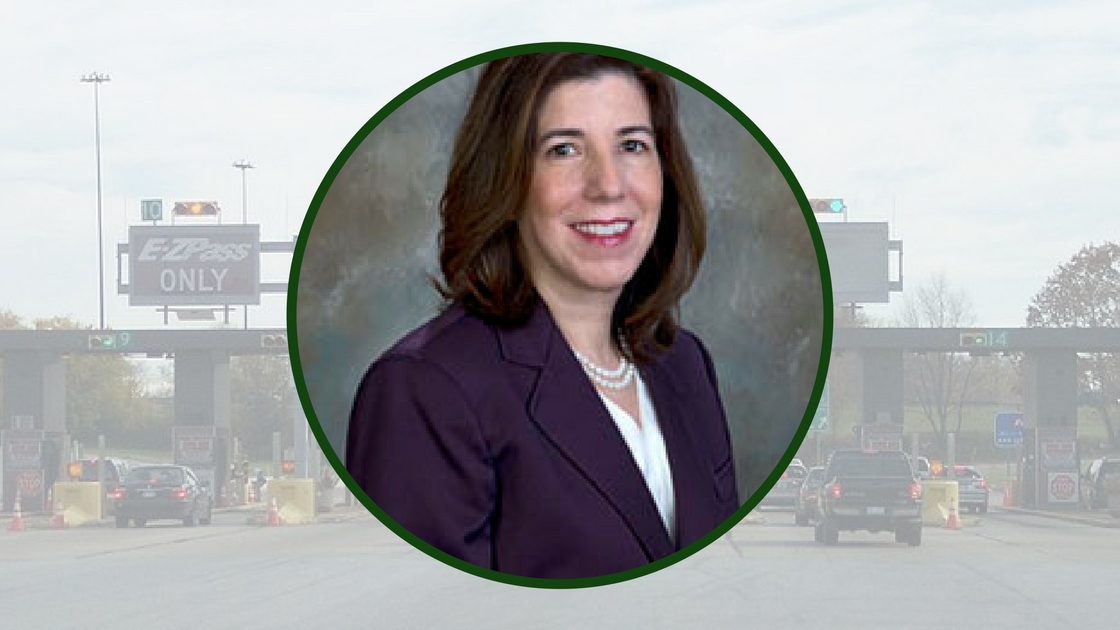On Tuesday, Whitemarsh resident and PennDOT Secretary Leslie S. Richards was named chair of the Pennsylvania Turnpike Commission (PTC) as part of a reorganization commissioners approved during a bimonthly meeting of the five-member panel. Pittsburgh businessman William K. Lieberman was appointed vice chairman of the PTC, and former Senator John N. Wozniak of Johnstown attended his first meeting as a Turnpike commissioner. In addition, PTC Commissioner Barry Drew of Mechanicsburg was named secretary-treasurer.
“I have had the honor of serving as the commonwealth’s first female transportation secretary since I was named to that post by Governor Tom Wolf in January 2015, and becoming the first female PA Turnpike chair is an equally remarkable privilege,” Richards said. “The first Turnpike commissioners were appointed in the spring of 1937, and accomplishing a milestone like this in an organization that was started more than 80 years ago is undoubtedly historic. I’d like to thank my fellow commissioners for the faith they have shown in me.”
Secretary Richards began her career in civil engineering and project management before being elected to the Whitemarsh Township Board of Supervisors in 2007 and the Montgomery County Board of Commissioners in 2011. In addition, she served on the Southeastern Pennsylvania Transportation Authority (SEPTA) board and was chair of the Delaware Valley Regional Planning Commission (DVRPC) board. She is a graduate of Brown University and the University of Pennsylvania.
The PA Turnpike Commission was created by the state legislature in 1937 to construct, finance, operate and maintain the Turnpike, which opened to traffic on Oct. 1, 1940. Four commissioners, appointed by the governor and confirmed by the senate, plus the secretary of transportation, serve on the commission for four-year terms. The commission oversees more than 550 miles of highway which carries about 550,000 vehicles per day.
During the same meeting, the Pennsylvania Turnpike Commission approved a six percent toll increase for both E-ZPass and cash customers; the increase is set to take effect at 12:01 a.m. on Jan. 7, 2018.
The toll increase will result in the most common toll for a passenger vehicle will go from the current $1.23 to $1.30 for E-ZPass customers and from $1.95 to $2.10 for cash customers. The most common toll for a Class-5 vehicle — a prevalent tractor-trailer class — will increase from $10.17 to 10.78 for E-ZPass and from $14.45 to $15.35 for cash.
The toll increase — like previous increases since 2009 — is required to meet the PTC’s various funding obligations. These include providing funding to the PA Department of Transportation (PennDOT) to support public transportation statewide and improving the Turnpike’s own 550-mile toll-road system that is almost 77 years old in places.
“The Turnpike Commission is obligated by state law to augment Pennsylvania’s infrastructure needs; in fact, the commission has delivered $5.65 billion in toll-backed funding to PennDOT in the last decade,” said PA Turnpike CEO Mark Compton. “Today, our annual payments of $450 million enable PennDOT to provide operating support to mass-transit authorities across the state to help ease future fare increases for riders.”
Since August 2007, the PTC made 40 quarterly payments to PennDOT totaling $5.65 billion. Of that, $2.25 billion has supported the PA Motor License Fund (MLF) where it is invested in off-Turnpike highway and bridge projects; $3.4 billion has supported the PA Public Transportation Trust Fund (PTTF) to provide financial assistance to the public-transit systems. Beginning in 2014, the PTC’s payments no longer funded the MLF but have gone exclusively to the PTTF.
“At the same time, we must also continue to invest in our aging tollway system and make it safer, wider and smoother for our customers,” Compton said. “This fiscal year, about 85 percent of the PTC’s $500 million capital budget is focused on renewing, rebuilding and expanding our toll highways which last year carried a record 200 million vehicles.”
The PTC has thus far reconstructed more than 124 miles of its system, with another 20 miles of roadway now being rebuilt and widened and more than 90 miles currently in planning and design phases.

